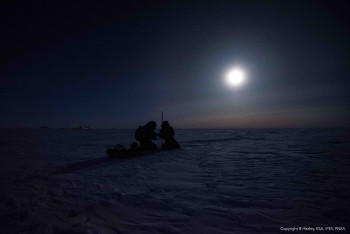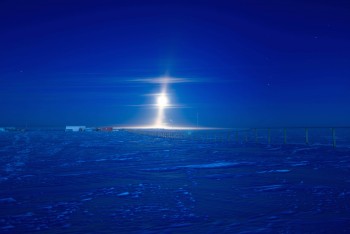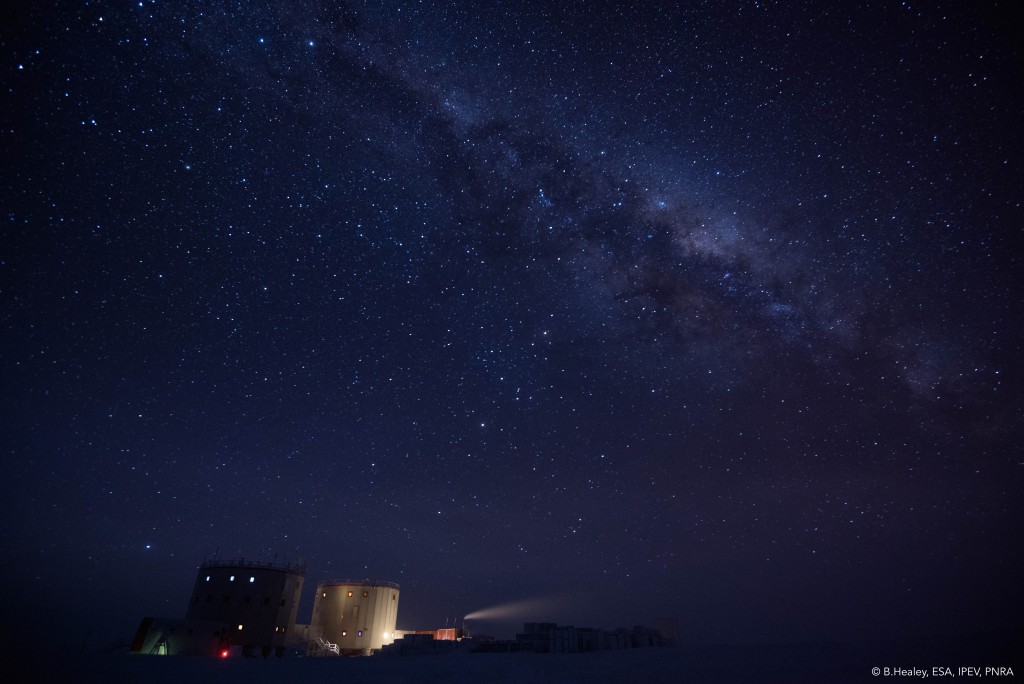ESA-sponsored medical doctor Beth Healey wrote this blog post: I last saw the sun 63 days ago 4 May as it crept below the horizon for the last time for the next 100 days. It was a strange sensation to say goodbye to the Sun. Today’s darkness is a stark contrast to the 24 hours of daylight we enjoyed during the summer months, and it is strange to think that only a few weeks before that we enjoyed our first Antarctic sunset.
The darkness together with the plummeting temperatures (–80°C) make working outside a considerable challenge during these winter months. Now equipped with clear goggles and a head torch it is still extraordinary to head outside and be greeted by the Milky Way at lunch!
For the ESA Bacfinder experiment I am required to travel up to 1 km from the base and into the darkness to collect snow samples. Other scientists do this every day and some climb 40 m up the ‘American’ tower to maintain their experiment equipment! It is not just the scientific team facing the elements: the technical team regularly make repairs outside or collect snow to melt for drinking water. They use a large caterpillar-tractor driving over a path lit only by our headlights.
The main challenge for me is not facing the elements outside but the marked change in my sleep pattern. With no point of reference I regularly find myself wide-awake in the middle of the night and falling asleep at lunch! We are offered UV lights and vitamin supplements in an attempt to counteract this.
Another ESA experiment this year considers the use of artificial light and lack of natural daylight on our pupillary reflex. On a weekly basis I take measurements using a pupillometer of each of the crew’s reflex to different light waveforms. It will be interesting to see the results of this experiment and what effect (if any) this environment has had. We hope the results will be useful for astronauts on long-duration spaceflights but also for night-shift and factory workers who rely on artificial light.







Discussion: 3 comments
Dear Dr. Healey, dear members of the team at Concordia Base, Antarctica
I would like to know, in addition to what are the implications of the extreme day/night cycle at the station on the circadian rythms, whether geological field work and/or experiments are carried out at the station.
Yours,
Sergio Castro-Reino
Just discovered the Concordia mission. Sooo cool what you are doing. Makes me proud of us humans.
LIKE!
Serge
What kind of gear do you need to venture outside during winter? How long can you stay out safely?